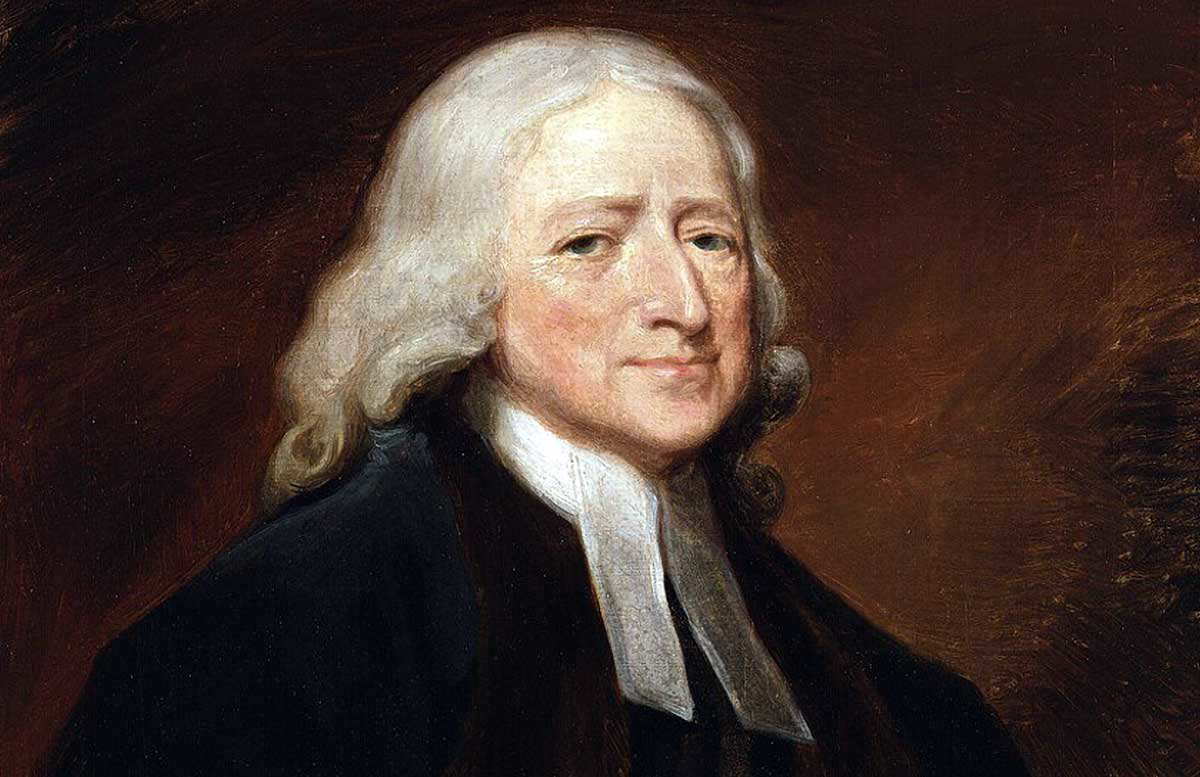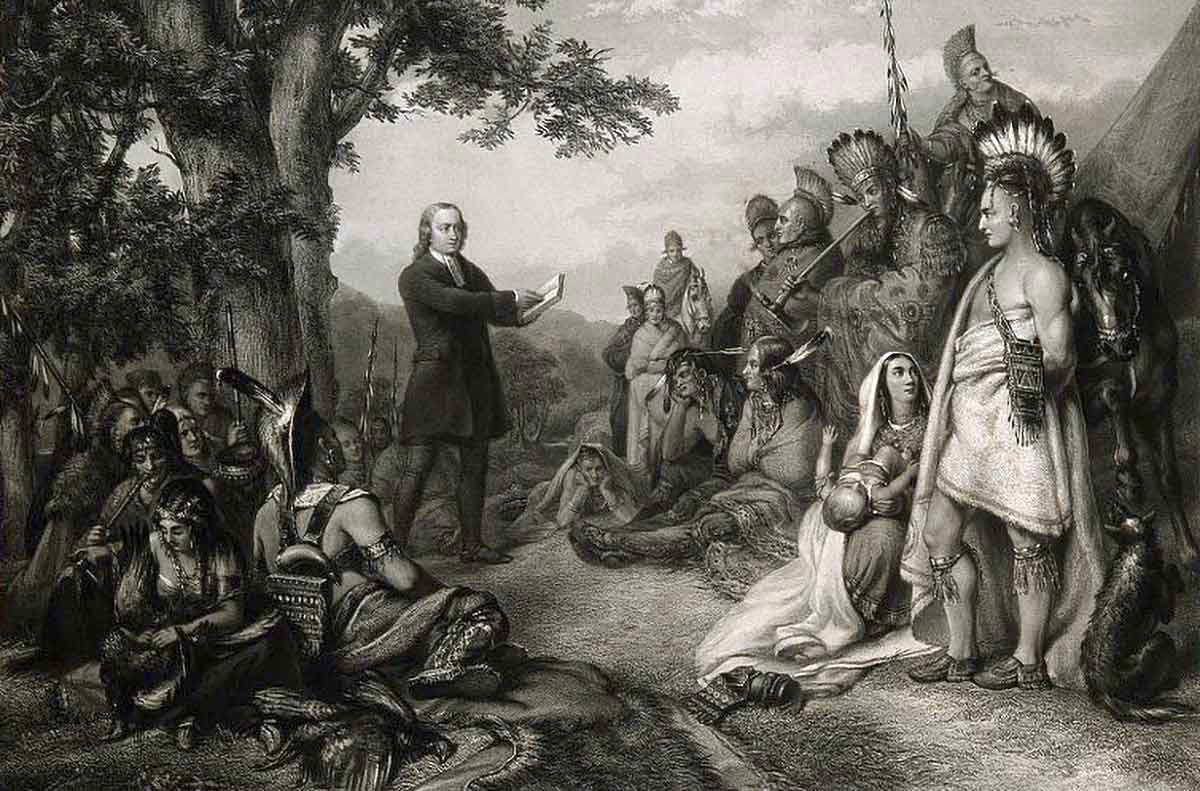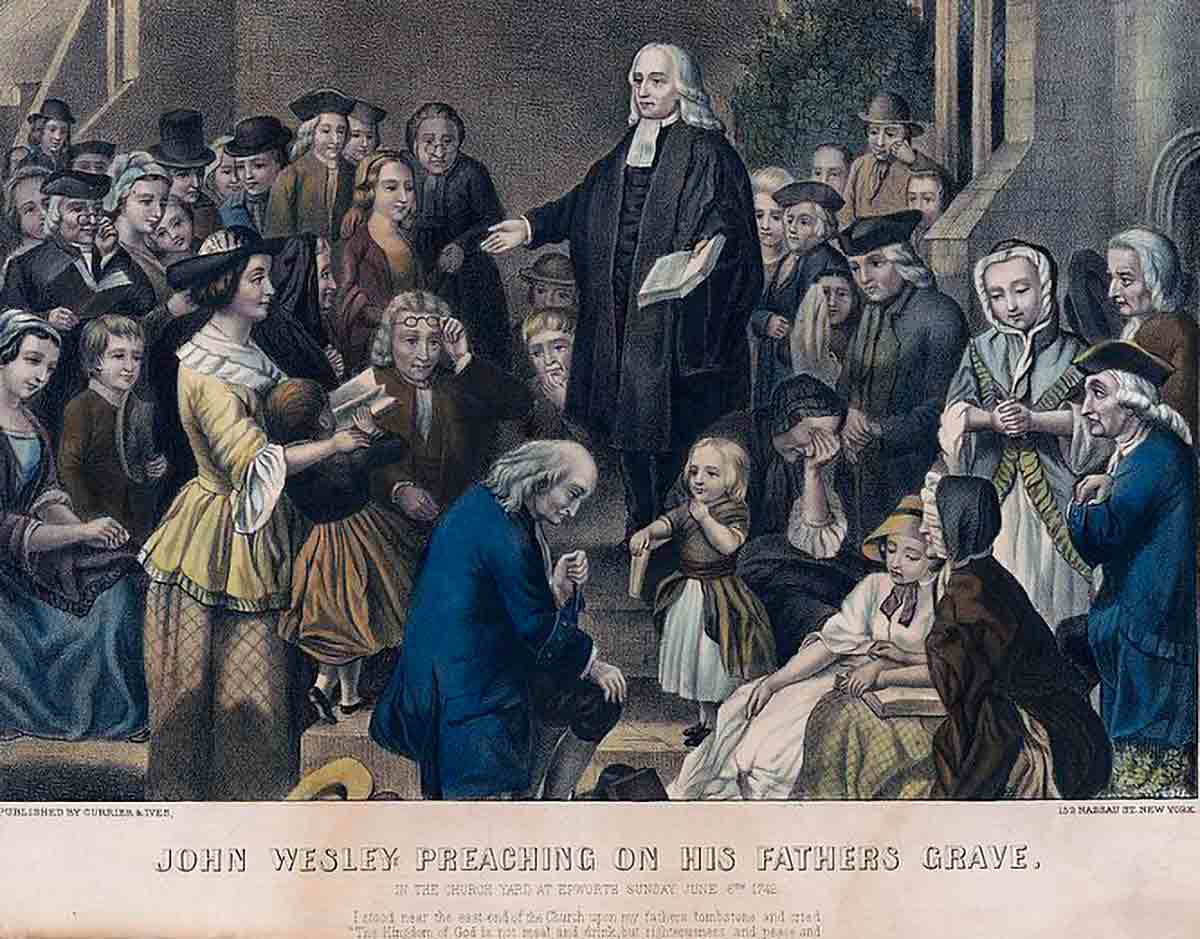
Born in England from a revival in the Anglican Church, Methodism soon jumped across the ocean to become a significant denomination among American churches. It originated with the brothers Wesley, John, and Charles, though the most notable name in Methodism was Francis Asbury. Much of the early success of the Methodist Church was due to the prolific work Asbury did to spread the faith throughout America.
What Are the Origins of the Methodists?

John and Charles Wesley were Anglicans. In their lifetime, there was much opposition to the Christian faith from philosophers like the French Voltaire, the Scottish Hume, and others who challenged the core tenets of the faith. John, Charles, George Whitfield, and others, who attended Oxford University, decided to meet regularly to study the Bible, pray, and reason together on matters of faith. Other students called them the Holy Club, teasing them for their dedication and sanctified lifestyle.
The members of the Holy Club developed a way of thinking about life and faith that impacted how they approached life. Scoffers began calling them “Methodists” as a derogatory slur, mocking the structured and reasoned approach the Holy Club had to live their faith. John Wesley embraced the term, steadfast in pursuing a lifestyle pleasing to God.
The Wesley Brothers were invited to minister in the Georgia colony in America and traveled the ocean to answer the call. During the trip, they met Moravians on board and John was particularly impressed with their faith. On the voyage, they encountered a severe storm, yet the Moravians remained calm and continued worshiping God in song, seemingly at peace with whatever fate awaited them. This meeting left a lasting impression on him.

The Wesley brothers ministered to Colonists and evangelized the Native Americans in the Georgia colony. Their ministry was, however, without success and John left North America shortly after his brother Charles returned.
On their return, Wesley sought out the Moravians and after meeting with a missionary named Peter Boehler, Wesley had a conversion experience. Later, Charles Wesley and George Whitfield had similar experiences. Whitfield, an Anglican clergyman, felt the need for societies where the Bible could be studied, and expression of their faith could flourish. These gatherings were not meant to compete with Anglicanism but rather to serve as a space for the practice of their faith in a way that would complement the Church liturgy.
When Whitfield traveled to America, his messages were well received and impacted people from many denominations. The revival it sparked was known as the First Great Awakening. In America, many churches split because of this “new theology” and Methodist Churches were established in many places. John Wesley started ordaining people to present the sacraments to these newly established churches. The practice was frowned upon by Anglicans who believed ordination was the prerogative of Anglican Bishops alone.
Back in England, most people who attended Methodist chapel services had ceased attending Anglican services. This led to the gradual change of Methodism into a distinct denomination and Anglicans excluded Methodists from their ranks.

One of the missionaries Wesley appointed was Francis Asbury, who was 22 at the time. Asbury was born in England but showed himself willing and able to function as a layperson in reaching others. He was later ordained, and Bishop Asbury became the head of the Methodist Episcopal Church in America. He traveled all over the American frontier establishing churches and ministering to everyone willing to listen to his messages.
Under Asbury’s leadership, the Church grew to over 200,000 members. He ordained more than 200 ministers including some of African American descent. Among them was Richard Allen who became the founding bishop of the African Methodist Episcopal Church. The legacy of Francis Asbury is celebrated by the statues erected in his honor and by the seminaries and universities named after him. He left an indelible mark on the Methodist Church in America.
There are several groups within Methodism, some calling themselves Wesleyan and others sticking to the name Methodist. The United Methodist Church is the largest Methodist denomination in the world.
General Beliefs

Like most Christian Churches, the Methodists believe in the Trinity: God the Father, the Son, and the Holy Spirit as three persons in one Godhead.
They believe in the priesthood of all believers, and they practice the baptism of infants and children in various ways. They hold open communion which all who wish to partake in can join. As for Anglicans, logic and reason play an important part in their understanding and expression of their faith. This approach contributed to the name “Methodist.”
Taking the example of their founder, John Wesley, Methodists take an active stance on societal matters. They are proactive and engage with the struggles of life as an expression of an active faith and a life changed by Christ.
Methodists believe man “is destitute of holiness and inclined to evil.” Nevertheless, man has been given free will and can choose by free will to do good when influenced by the Holy Spirit. They also believe “the offering Christ freely made on the cross is the perfect and sufficient sacrifice for the sins of the whole world, redeeming man from all sin so that no other satisfaction is required.”
In Methodism, they believe good works follow regeneration as evidence of the fruit of the spirit. These works, however, do not contribute in any way to the salvation of the individual.

Methodists believe that all who have lived will be resurrected and enter a final state. For those who were righteous, eternal life awaits, while those who were wicked will suffer endless condemnation.
Wesleyans believe in the “gifts of the spirit” and that these gifts must benefit the members attending the services where they are practiced. They reject the manifestation of unintelligible tongues as a biblical gift of the spirit due to its inability to edify other members of the Church.
Methodists believe in the sanctity of life, opposing induced abortion with minor exceptions, and they believe that infanticide and euthanasia are wrong. They do however support capital punishment for certain serious crimes.
Methodists, like many other denominations, expect the imminent return of Christ in person. They do not have an explicit preference for millennial or tribulation views in Methodism, though the expectancy of the Second Coming does motivate their zeal for evangelism and outreach.
Distinct Beliefs

Methodists focus on matters of social justice specifically on poverty, hunger, and inequality. They also hold a special 13-week Kingdomtide before Advent. During this time, Methodists focus on mission and evangelism while dedicating themselves to helping the poor and hungry. They spend much time visiting those in prison, hospitals, and orphanages.
On the first Sunday of each new year, a covenant service is held to renew their commitment to God. This is done in part as an answer to John Wesley’s call to recommit to God. At these events, an original prayer by Wesley is often recited.
Methodists have a rich musical tradition with thousands of hymns. A large part of their divine services are spent engaged in singing.
Methodists regard inclusiveness as a high priority and teach “entire sanctification,” which means that any believer could attain a state where they are fully motivated by the love of God and neighbor, although not without human imperfections.
Methodism is based on the “Wesleyan Quadrilateral” (scripture, tradition, reason, and experience). These four aspects contribute to the establishment of faith and doctrine. While scripture is primary, tradition, reason, and experience may influence how scripture is read and interpreted.
Methodists do not subscribe to the “once saved always saved” theology. They believe anyone can fall and be lost after salvation. This is due to the cooperation of the believer with the work the Holy Spirit does in the believer. Any believer who chooses not to cooperate with God any longer can fall from grace.
What Is the Structure of the Methodists?

Due to the variety of Methodist denominations, there is no singular structure applicable to all. The United Methodist Church has divided the world into four regions: Africa, Europe, the Philippines, and the United States. Each has the authority to adapt the Book of Discipline, which serves as a guide for the churches in each region, to better suit local customs and culture. The church’s structure consists of the General Conference, the Council of Bishops, and the Judicial Council.
The World Methodist Council is an international association to which more than 80 different Methodist, Wesleyan, and similar denominations belong. They represent more than 80 million believers.
The Methodist Churches are well represented across the globe and have shown significant growth in recent years, though some decline in the US and UK have been noted.
For the most part, Methodist Churches follow an itinerant system of clergy appointments, meaning Bishops appoint pastors to local congregations. This system of governance is therefore centralized though significant leeway is granted on matters of culture and custom.








